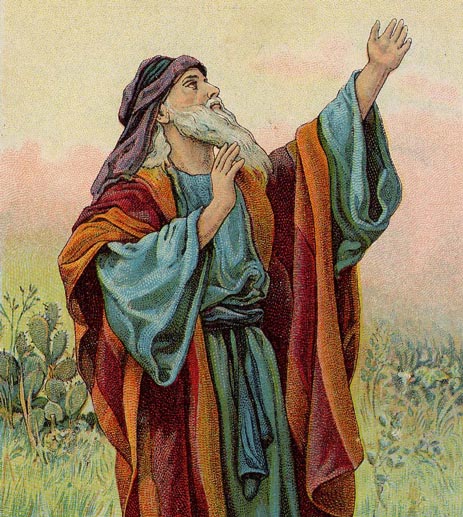The Bahá’í Faith presents a profound and multi-dimensional understanding of education, particularly through the lens of its central figures, known as the Manifestations of God. These illustrious educators are not merely religious leaders; they embody divine attributes and offer transformative teachings that promise to elevate humanity’s collective consciousness. In examining the role of these Great Educators, one can explore the intricate tapestry of enlightenment, social cohesion, and moral rejuvenation they weave into the fabric of human experience.
In the climate of contemporary society, where materialism often eclipses spiritual engagement, the Bahá’í Faith invites individuals to reassess their values and perspectives through the teachings of its Manifestations. These figures include Jesus Christ, Muhammad, Moses, Buddha, and Bahá’u’lláh, the founder of the Bahá’í Faith. Each Manifestation, while tethered to their unique historical and cultural milieu, heralds universal truths that transcend temporal boundaries. The reverberations of their teachings invite humanity to embark on a journey of self-discovery, fostering a curious exploration into the nature of existence and the responsibilities that accompany it.
At the core of Bahá’í teachings lies the principle of unity in diversity. This concept serves as a guiding star for the Grand Educators, showcasing how disparate cultures, religions, and ideologies can converge towards a harmonious existence. The importance of understanding that every Religion represents a chapter in the continuous unfolding of divine revelation can potentially realign human perceptions, nurturing a global citizenship rooted in mutual respect. It is an invitation to recognize the shared essence of humanity, encouraging dialogues that illuminate the necessity of collective progress.
The Great Educators stress the significance of knowledge as a catalyst for personal and societal transformation. Education, in the Bahá’í context, transcends mere academic instruction. It embodies a holistic approach, harmonizing intellectual, ethical, and spiritual growth. This comprehensive perspective emphasizes that the development of virtues such as compassion, honesty, and justice alongside intellectual pursuits facilitates a well-rounded, purposeful life. To promote such an educational revolution in the modern age, a paradigm shift is essential. Parents, teachers, and communities must collectively advocate for a nurturing environment conducive to curiosity and exploration.
Furthermore, the teachings of the Manifestations elucidate the profound interconnectedness that characterizes all aspects of creation. They posited that humanity’s spiritual awakening necessitates an acknowledgment of this interconnectedness, urging individuals to transcend personal desires and embrace the collective good. This perspective cultivates a sense of responsibility towards the environment and fellow beings, encouraging altruistic actions that resonate across generations. In an era marked by environmental degradation and social injustice, recognizing our place within the larger cosmic order can ignite a passion for stewardship and advocacy.
Additionally, the principles of equality and justice are recurrent themes celebrated by the Great Educators. Their teachings advocate for the eradication of prejudice and discrimination in all forms. The Bahá’í Faith resonates with the ethos that true justice can only flourish when impediments to equality are dismantled. By committing to gender equality, racial harmony, and economic fairness, individuals can embody the ideals propagated by the Manifestations. Such commitments engender a renewed sense of hope and resilience, reshaping societal structures to mirror the divine attributes exemplified by these educators.
The impact of these teachings extends beyond personal transformation to encompass societal structure. The Bahá’í stipulations regarding governance advocate for a system grounded in consultation and collective decision-making. The significance of this approach lies in its potential to dissolve authoritarianism and promote transparency and accountability. Manifestations illustrate that effective governance should not merely echo the desires of the few but reflect the aspirations of the wider community. When citizens engage in meaningful discourse and partake in the democratic process, they can serve as instruments of change, fostering a culture of cooperation and mutual understanding.
Invisible as it may seem, the essence of the teachings reverberates in various global movements advocating social justice, environmental sustainability, and human rights. The call to action is not limited to religious gatherings but manifests in community service, educational initiatives, and activism. By embodying the ideals professed by the Great Educators, individuals cultivate a legacy of hope that transcends the confines of personal ambition, promoting the welfare of society at large.
This spirited inquiry into the teachings of the Manifestations of God is more than an academic exercise; it is a profound call to action. The aspirations of the Bahá’í Faith center around realizing a world that reflects unity, justice, and collaboration. As humanity grapples with epoch-defining challenges, the insights gained from the Great Educators herald a clarion call for transformation—a pivotal moment wherein individuals are beckoned to awaken their inherent potential and contribute meaningfully to humanity’s collective future.
In conclusion, exploring the Great Educators through the Bahá’í lens prompts a radical shift in one’s understanding of education and social responsibility. It cultivates an awareness of higher ideals and encourages curiosity about our shared existence. The teachings of the Manifestations promise not only personal enlightenment but also the creation of a world where peace, justice, and unity flourish—an invitation to reconsider our place in the world and to act upon the revelations gifted by the Great Educators.
